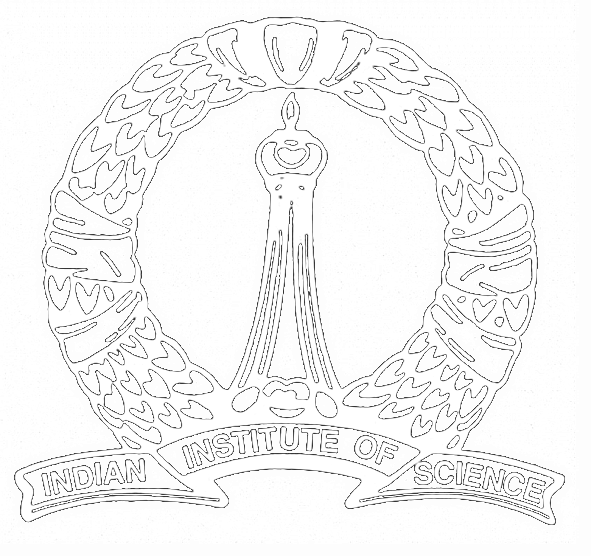PhD Thesis colloquium
Title: Trace Estimate For The Determinant Operators
Speaker: Paramita Pramanick (IISc Mathematics)
Date: 06 August 2020
Time: 4 pm
Venue: Microsoft Teams (online)
Let $\boldsymbol T=(T_1, \ldots , T_d)$ be $d$ -tuple of commuting operators on a Hilbert space $\mathcal{H}$. Assume that $\boldsymbol T$ is hyponormal, that is, $\big [\big [ \boldsymbol T^*, \boldsymbol T \big ] \big ] :=\big (\big ( \big [ T_j^*,T_i] \big )\big )$ acting on the $d$-fold direct sum of the Hilbert space $\mathcal{H}$ is non-negative definite. The commutator $[T_j^*,T_i]$, $1\leq i,j \leq d$, of a finitely cyclic and hyponormal $d$-tuple is not necessarily compact and therefore the question of finding trace inequalities for such a $d$-tuple does not arise. A generalization of the Berger-Shaw theorem for commuting tuple $\boldsymbol T$ of hyponormal operators was obtained by Douglas and Yan decades ago. We discuss several examples of this generalization in an attempt to understand if the crucial hypothesis{\rm in their theorem requiring the Krull dimension of the Hilbert module over the polynomial ring defined by the map $p\to p(\boldsymbol T)$, $p\in \mathbb C[\boldsymbol z]$, is optimal or not. Indeed, we find examples $\boldsymbol T$ to show that there a large class operators for which $\text{trace}[T_j^*,T_i]$, $1\leq j,i \leq d$, is finite but the $d$-tuple is not finitely polynomially cyclic, which is one of the hypothesis of the Douglas-Yan theorem. We also introduce the weaker notion of “projectively hyponormal operators” and show that the Douglas-Yan theorem remains valid even under this weaker hypothesis. However, one might look for a function of $ \big [\big [ \boldsymbol T^*, \boldsymbol T \big ] \big ]$ which may be in trace class. For this, we define an operator valued determinant of a $d\times d$-block operator $\boldsymbol B := \big (\big ( B_{i j} \big ) \big )$ by the formula
\begin{equation} \text{dEt}\big (\boldsymbol{B}\big ):=\sum_{\sigma, \tau \in \mathfrak S_d} \text{sgn}(\sigma)B_{\tau(1),\sigma(\tau(1))}B_{\tau(2),\sigma(\tau(2))},\ldots, B_{\tau(d),\sigma(\tau(d))}. \end{equation}
It is then natural to investigate the properties of the operator
$\mbox{dEt}\big (\big [\big [ \boldsymbol T^*, \boldsymbol T \big ]\big ] \big ),$
in this case, $B_{i j} = [T_j^*,T_i]$.
Indeed, we show that the operator dEt equals the generalized commutator
$\text{GC} \big (\boldsymbol T^*, \boldsymbol T \big )$ introduced earlier by
Helton and Howe. Among other things, we find a trace inequality for the operator
$\mbox{dEt}\big (\big [\big [ \boldsymbol T^*, \boldsymbol T \big ]\big] \big ),$
after imposing certain growth and cyclicity condition on the operator $\boldsymbol T$, namely,
\begin{equation} \text{trace} \big( {\rm dEt} \big( [[ \boldsymbol{T}^*, \boldsymbol{T} ]] \big) \big) \leq m \vartheta d! \prod_{i=1}^{d} |T_i|^2 \end{equation}
for some $\vartheta \geq 1.$ We give explicit examples illustrating the abstract inequality.
- All seminars.
- Seminars for 2020
